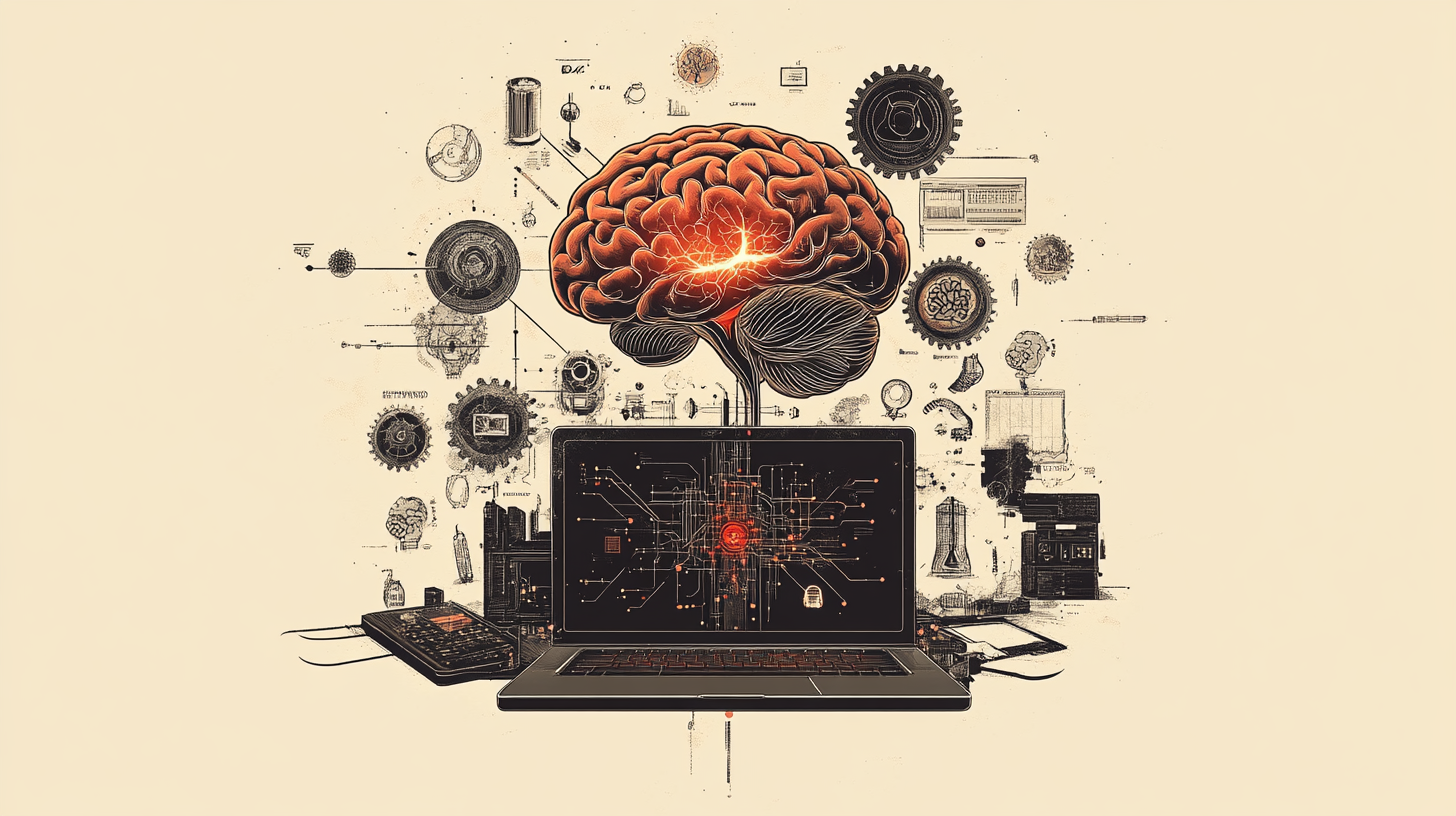AI isn’t making people dumb. It’s revealing who has already stopped thinking.
When MIT released the study Your Brain on ChatGPT, and Microsoft and Carnegie Mellon echoed similar findings, the anti-AI crowd went wild. Headlines proclaimed what critics long suspected:
“AI is rotting your brain.”
They weren’t entirely wrong.
But they weren’t right either.
The real problem? It’s not the AI. It’s you.
AI Is the Great Amplifier
The MIT study found that people who relied heavily on ChatGPT showed lower memory retention and brain activity — even after stopping use. Microsoft’s study warned that people over-trusting AI experience cognitive atrophy.
But here’s what the hot-take crowd missed:
AI only makes you dumb if you are already dumb.
Smart people don’t surrender thinking. They upgrade it.
The Three Levels of AI Users
Let’s zoom out. Dan Koe describes three levels of consciousness in how people interact with tools like AI:
Level 1: The Shortcut Seeker
- Uses AI to do all the work
- Outsources thinking, creativity, and effort
- Lives by external goals (status, money, societal norms)
Result? A weak mind that gets weaker.
Level 2: The Status Chaser
- Uses AI to look productive or sound smart
- Chases external validation without depth
- Still dictated by old scripts and approval-seeking
Result? Shiny content, shallow roots.
Level 3: The Conscious Amplifier
- Uses AI to support meaningful, self-directed goals
- Treats it as a cognitive partner, not a crutch
- Engineers prompts that simulate their own reasoning
Result? Leverage. Mastery. Creativity.
The Real Danger: Surrendering Your Thinking
AI doesn’t replace your brain unless you let it. The real trap is psychological. It’s easier to:
- Ask AI what to believe
- Let AI do the writing
- Let AI shape your strategy
That’s the mistake.
Truth matters more than speed, more than authority, more than comfort.
History already warned us. The Greeks questioned everything. Socrates himself didn’t trust books. He believed in reasoning through dialogue. If he lived today, he wouldn’t bow to AI. He’d argue with it.
Three Smarter Ways to Use AI
1. AI as a Thought Partner
Most people treat ChatGPT like Google with personality. Bad move.
To use AI well, simulate a thinking partner:
- Share your ideas first
- Ask it to challenge your thinking
- Get it to probe, not praise
Prompt example:
“Here’s my idea: [insert]. Now act like a contrarian mentor and poke holes in this. Find blind spots. Challenge assumptions. Don’t compliment me. Push me.”
Done right, AI becomes a sparring partner, not a substitute.
2. AI as a Synthesis Engine
AI excels at pattern recognition. Use it to:
- Compare thinkers you admire
- Map their overlapping principles
- Spot contradictions and blind spots
Example:
“Create a worldview map that synthesises Naval Ravikant, Daniel Schmachtenberger, and Maria Popova. What ideas do they share? Where do they diverge? What blind spots remain?”
You’ll learn more in one hour than one month of solo note-taking.
3. AI as a Process Externaliser
Want to scale your genius? Turn your internal processes into repeatable prompts:
- Break down how you write, design, or decide
- Codify the steps
- Have AI replicate it for speed, not thinking
You stay the creative. AI handles the grunt work.
Example:
“Based on this outline and tone, draft three email variations in my voice. Prioritise punchy insights, one idea per paragraph, and bold conclusions.”
Case Study: The Aspiring Author
A friend of Dan Koe’s always wanted to write a novel but felt overwhelmed.
Instead of asking AI to write it for him, he:
- Loaded Brandon Sanderson’s writing lectures into ChatGPT
- Fed it his rough story ideas
- Asked it to give structured feedback, clarify story arcs, and suggest character development frameworks
The result? A clear path forward.
AI didn’t replace him. It removed friction.
He still had to write. Still had to think. But the barrier to entry was lower. The overhead was handled. Now, writing became joyful.
The Hard Truth
AI doesn’t make people dumb. It reveals:
- Who’s outsourcing their ambition
- Who’s sleepwalking through their goals
- Who’s unwilling to earn their insight
Dan Koe says it best:
“You must earn your consciousness.”
The question is:
- Are you using AI to skip the work?
- Or are you using it to do the real work better?
Closing: Choose Your Level
Level 1: Feeds prompts, gets answers, stays stagnant.
Level 2: Builds prettier prompts, looks smarter, still shallow.
Level 3: Uses AI to question, distil, sharpen, and elevate.
That third path is wide open. You just have to stop surrendering.
Use AI like the amplifier it is. But never let it write your script.
Your agency is the only real variable.
Let AI extend your thinking. Not replace it.






